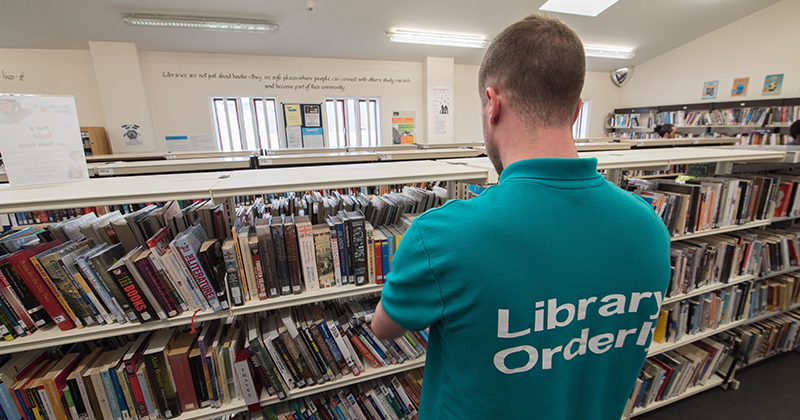The next prime minister must take radical action on prison education as evidence shows education providers face multiple barriers, writes Peter Brammall
“While talent is spread equally across our country, opportunity is not. Levelling up is a mission to challenge, and change, that unfairness. Levelling up means giving everyone the opportunity to flourish.”
So said the levelling up white paper, published to much fanfare back in February.
While the man behind the slogan, Boris Johnson, is living on borrowed time in Downing Street, the two rivals to be his successor – Liz Truss and Rishi Sunak – have both insisted that the mission of levelling up the UK continues.
But what none of the proponents of this policy seem to have grasped is that, if levelling up is to have any real meaning, it has to start at the bottom.
And this shouldn’t just be about “left-behind” provincial towns.
When we think of what education select committee chair Robert Halfon calls the “ladder of opportunity”, we must not forget those left behind and isolated – all too literally – from their communities. Prisoners.
Even by the time they walk through the prison gate for the first time, these individuals are all too often already at a disadvantage.
Many have had limited or negative previous experiences of education; Ministry of Justice data shows that 57 per cent of adult prisoners have literacy levels below those expected of an 11-year-old.
Prison education offers the best opportunity of providing prisoners with the support, training and skills they need to escape the cycle of reoffending by finding stable employment at the end of their sentence – not to mention a means of reducing the astonishing £18 billion-a year cost of reoffending to society.
So why does it receive so little focus from politicians and policymakers?
Analysis by Novus suggests that the funding rate for the male prison population stands at less than one fifth of the equivalent rate for students in community-based adult education.
Education providers in this most complex and challenges of contexts are, quite simply, expected to do more with less.
And it’s not just about money: insightful reports published this year by the education and justice select committees shine a light on the structural and cultural obstacles providers face in delivering the standard of education and support that prisoners so badly need.
But while it’s easy to look on in consternation at the list of issues which need to be addressed, there is no need to be despondent about the future of prison education.
As anyone who attended Novus’ ‘moving on’ Conference last month can attest, it’s impossible not to be caught up in the energy, enthusiasm and expertise which pervades the sector.
There is a real passion from those who are engaged with this cohort, helping to maximise their educational opportunity on a daily basis.
We are working with a fraction of the prisoners we could be supporting
As conference speaker Fred Sirieix, maître d’hôtel in Channel 4’s First Dates and founder of The Right Course, pointed out, there are myriad examples of outstanding practice which have emerged. That’s despite some of the systemic challenges and structures which exist.
Through its partnership with The Right Course, Novus helps to deliver professional hospitality and catering training using prison staff canteens as the vehicle for work experience.
We have many other innovative collaborations with employers across the country, including Green King, Willmott Dixon and Premier Waste Recycling.
But we are working with a fraction of the prisoners we could be supporting, often aided by relatively small pockets of discretionary funding, a bit of innovative thinking and leveraging the sector ‘nous’ and contacts of partners such as Fred and his team.
In pockets, this entrepreneurial approach works phenomenally well.
But with up to half of prisoners not having access to education in the first place, and many who are allocated to education regularly failing to find their way to the classroom, even the scarce resources in play are often not being used as effectively as they could be.
Collectively, we can, and must, do better.
As a national provider of prison education with a wealth of expertise developed through 30 years of supporting the hardest-to-reach learners, Novus is determined to be part of this conversation – and to contribute towards building a prison education service fit for the 21st century.
This is not the time for settling for how things currently are.
If things are to improve, we collectively have to make the case for ambitious change.
At our conference we were treated to valuable workshops from practitioners and employers, outlining what is working well and areas where real change is desperately needed.
We also heard insights by representatives from the likes of the Prisoners’ Education Trust, the Learning and Work Institute and Her Majesty’s Prison and Probation Service.
We are all aspirational for the system and the potential for real change it could offer and believe it is time for a New Deal for prison education.
Together, we can achieve so much more – and create a movement for genuine levelling up that starts at the bottom rung of the ladder.









Your thoughts